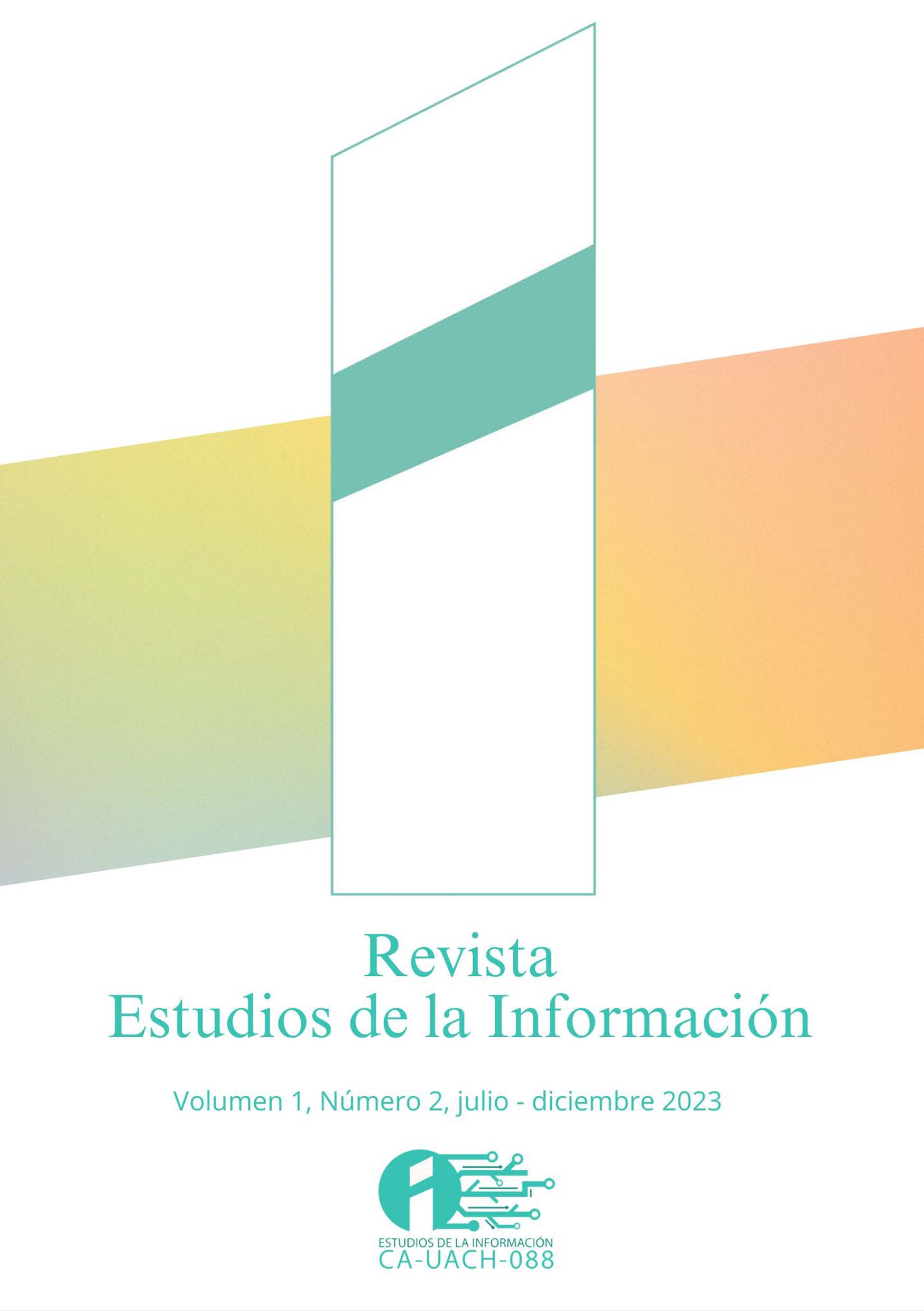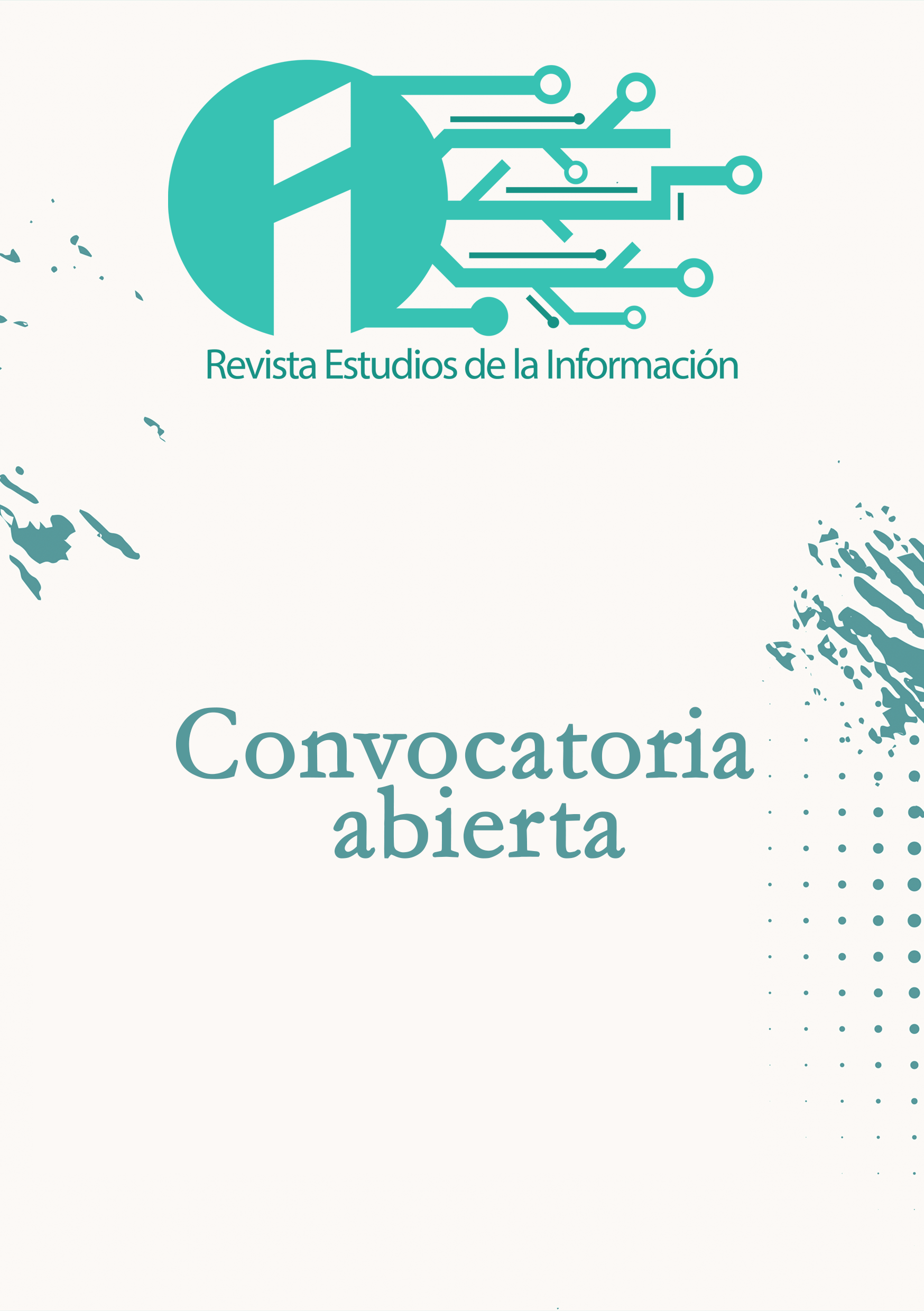Basic principles for the configuration of the National Memory System in Ecuador
DOI:
https://doi.org/10.54167/rei.v1i2.1362Keywords:
research activity reports, information, cultural dynamization, information rights, good living, social sciences, political constitution of EcuadorAbstract
The general objective of the research was to analyze the current conditions along with the necessary considerations to configure a National Memory System in Ecuador (SNM). For this, it was necessary to support the following specific objectives: (1) identify the conceptual, regulatory and legal references that would serve as a framework for the configuration of the SNM; (2) determine the critical factors and conditions necessary for its effective configuration; and (3) establish the basic lines to establish the design of an institutional proposal for the SNM. The research highlighted the need for the creation of the SNM that performs independently, but interrelated with the National Culture System (SNC), all from the following research question: what are the current conditions and the necessary considerations for the configuration of the SNM in the Republic of Ecuador? The achievement of the response was structured in five chapters illustrating the basic guidelines necessary for the design of the proposal and its institutionalization in the nation.
Downloads
References
Abad, A. (2013). Las políticas públicas culturales del Ecuador en la época del Sumak Kawsay. Punto Cero, 18(26), 57-64. http://www.scielo.org.bo/pdf/rpc/v18n26/v18n26a07.pdf
Charvet, E. S. (2011). Rendición de cuentas 2010. Ministerio de Cultura y Patrimonio. https://acortar.link/9BUQV0
Charvet, E. S. (2013). Rendición de cuentas 2012. Ministerio de Cultura y Patrimonio. https://acortar.link/XuyTZu
Chihu, A. (2018). Los marcos de la experiencia. Sociológica, 33(93), 87-117. https://acortar.link/GbCZzP
El Universo. (2006). 27 de noviembre del 2006: Ganó Rafael Correa. https://acortar.link/iefrc7
Erll, A. (2012). Memoria colectiva y cultura del recuerdo. Estudio introductorio. Ediciones Uniandes.
Giménez, G. (2009). Cultura, identidad y memoria: Materiales para una sociología de los procesos culturales en las franjas fronterizas. Frontera Norte, 21(41), 7-32. https://www.scielo.org.mx/pdf/fn/v21n41/v21n41a1.pdf
Hernández Sampieri, R., Fernández Collado, C., y Baptista Lucio, P. (2014). Metodología de la investigación (5ª ed.). McGraw Hill. https://www.icmujeres.gob.mx/wp-content/uploads/2020/05/Sampieri.Met.Inv.pdf
Maalouf, A. (2014). Identidades asesinas. Alianza
Ministerio de Cultura y Patrimonio del Ecuador. (2011). Políticas para una revolución cultural. MCYP. https://www.culturaypatrimonio.gob.ec/wp-content/uploads/downloads/2013/04/Revolucion-Cultural-2011-Folleto.pdf
Ministerio de Cultura y Patrimonio del Ecuador. (2014). Informe de rendición de cuentas año 2013. MCYP. https://acortar.link/12E0s2
Ministerio de Cultura y Patrimonio del Ecuador. (2015). Informe de Rendición de Cuentas preliminar para la audiencia pública periodo: enero – diciembre 2014. MCYP. https://acortar.link/EHfcxN
Ministerio de Cultura y Patrimonio del Ecuador. (2016). Rendición de Cuentas 2015. MCYP. https://acortar.link/g9cg9m
Ministerio de Cultura y Patrimonio del Ecuador. (2017). Rendición de Cuentas 2016. MCYP. https://acortar.link/hRKmyM
Ministerio de Cultura y Patrimonio del Ecuador. (2018). Informe de Gestión 2017. MCYP. https://acortar.link/Gf24JE
Ministerio de Cultura y Patrimonio del Ecuador. (2019). Informe de Gestión 2018. MCYP. https://acortar.link/z1LZ0d
Ministerio de Cultura y Patrimonio del Ecuador. (2020). Rendición de Cuentas 2019. MCYP. https://acortar.link/XuyTZu
Ministerio de Cultura y Patrimonio del Ecuador. (2021). Informe de Gestión 2020. MCYP. https://acortar.link/eWdNQs
Pacheco, J. F., y Contreras, E. (2008). Manual metodológico de evaluación multicriterio para programas y proyectos. Instituto Latinoamericano y de El Caribe de Planificación Económica y Social. https://repositorio.cepal.org/server/api/core/bitstreams/2c57fc60-2815-4436-891a-b338bc4a59d3/content
Pazmiño Acuña, R. (2022). Condiciones actuales y consideraciones necesarias para la configuración del Sistema Nacional de Memoria en Ecuador [Tesis de maestría en Gestión Documental y Administración de Archivos, Universidad de la Salle]. Repositorio Ciencia Unisalle. https://ciencia.lasalle.edu.co/maest_gestion_documental/85/
República del Ecuador. (2008). Constitución Política de la República del Ecuador. Asamblea Nacional Constituyente. https://www.oas.org/juridico/pdfs/mesicic4_ecu_const.pdf
República del Ecuador. (2016). Ley Orgánica de Cultura. Asamblea Nacional Constituyente. https://www.presidencia.gob.ec/wpcontent/uploads/2017/08/a2_LEY_ORGANICA_DE_CULTURA_julio_2017.pdf
Salgado, J. P. (2016). La Barra Espaciadora. Ley de Cultura: una tortuosa historia. https://acortar.link/0bDhif
Salkind, N. (1998). Métodos de Investigación. Prentice Hall.
Sepúlveda Carmona, M. (2013). De la retórica a la práctica: el enfoque de derechos en la protección social en América Latina. Naciones Unidas; CEPAL. https://repositorio.cepal.org/server/api/core/bitstreams/d815b9a2-fb63-4fe0-a9cc-23fc3abbfcf7/content
Seydel, U. (2018). La memoria cultural, su dinamismo y sus conflictos. Alter/nativas, (9), 2-31. https://alternativas.osu.edu/assets/files/issue9/ensayos/seydel-Intro-final.pdf
Downloads
Published
How to Cite
-
Abstract125
-
PDF (Español)60







